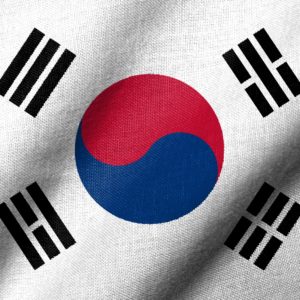If South Korea’s President Moon Jae-in fails to fulfill his ambition of dialog and reconciliation with North Korea before his five-year term runs out next May, he can only pray that the governor of the province surrounding Seoul will succeed him and pursue the same goal
Lee Jae-myung, elected governor of Gyeonggi Province in 2018, would if anything be more likely than Moon to yield to the North’s demands at the expense of close ties with the U.S. and the U.S.-Korean alliance. He might pay lip service to the joint statement issued by Moon and President Joe Biden at their White House summit in May, but he would place greater emphasis than Moon on yielding to North Korea’s demands while spurning Washington’s wishes for real signs of the North giving up its nuclear program.
Lee would deny the claims of conservative critics that he is “pro-North,” but his prior record as mayor of a city on the southern fringe of the urban sprawl of metropolitan Seoul has already earned him the reputation as “Korea’s Bernie Sanders.” That is, like the U.S. senator from Vermont, he advocates closing the gap between rich and poor while curbing the power of the business empires that dominate the economy.
Along with those sentiments, Lee leans far to the left in his advocacy of compromise with North Korea, with which Gyeonggi province shares nearly half of South Korea’s 160-mile-long border with North Korea. The fact that half the North’s 1.2 million soldiers lurk within 50 or so miles above the demilitarized zone between the two Koreas has not persuaded him that a tough, strong defense against attack would be a good idea.
Lee left no doubt about his soft-line position when expressing his strong opposition to the desire of North Korean defectors to shower the North with leaflets dropped from balloons fired from within his province. “Korean people’s lives and achieving peace” with North Korea, he said, take priority “over Korean people’s lives and our constitutional values.”
That explanation defies basic logic for two reasons. The first is leaflets pose no threat to South Koreans. It’s easy to claim North Koreans might fire on the balloons, but no one seriously expects them to endanger South Koreans living well south of the DMZ.
The second flaw in Lee’s comment is that North Korea is not going to agree to serious, lasting peace with the South. Leaflets or not, North Korea will go on insisting that the U.S. withdraw all its 28,500 troops from South Korea before considering the “peace treaty” that it so badly wants. North Korea also will require the dissolution of the United Nations Command, under which the U.S., South Korea, and 14 other countries fought the Korean War, and would call for the abrogation of the alliance between the U.S. and South Korea.
Lee would demand complete support for the agreement signed by Moon and North Korea leader Kim Jong-un when Kim and former President Donald Trump walked across the DMZ in April 2018 and affirmed “denuclearization” of the peninsula as their “common goal.” That wording was a precursor to the joint statement signed in Singapore nearly two months later by Kim and Trump at the apex of his four years as U.S. president in which they espoused precisely the same sentiment.
Having called for deals with North Korea and lost the 2017 primary to Moon, who cannot run for a second term under the 1987 “democracy constitution,” Lee is the front-runner for the nomination of Korea’s ruling Democratic Party.
No doubt U.S. diplomats will be cautious in dealing with Lee, hoping he will at least pay lip service to the alliance. Just as Biden showed no sign of disagreement with Moon during their meeting at the White House, so he would hope to keep relations with South Korea under Lee on an even keel.
That worthy aim might not be possible, however, if Lee insists on a peace treaty with the North, which the Americans definitely do not want. Lee would clash with U.S. diplomats and generals over the need for joint U.S.-Korean military exercises, and they would question any “step-by-step” deal with the North. What would be the point of concessions, such as withdrawal of sanctions, for nothing in return?
For the Americans, the best solution would be for the South to return to conservative rule. Next year’s election for president of South Korea is seen as a pivotal event that may change the focus of the country either toward or away from Washington.

